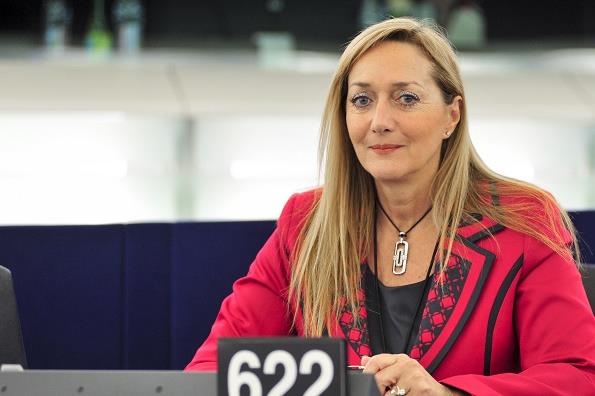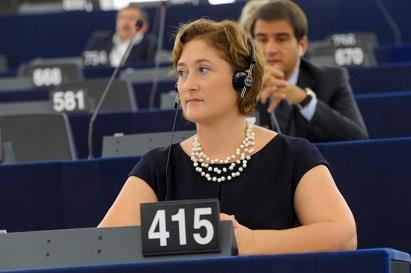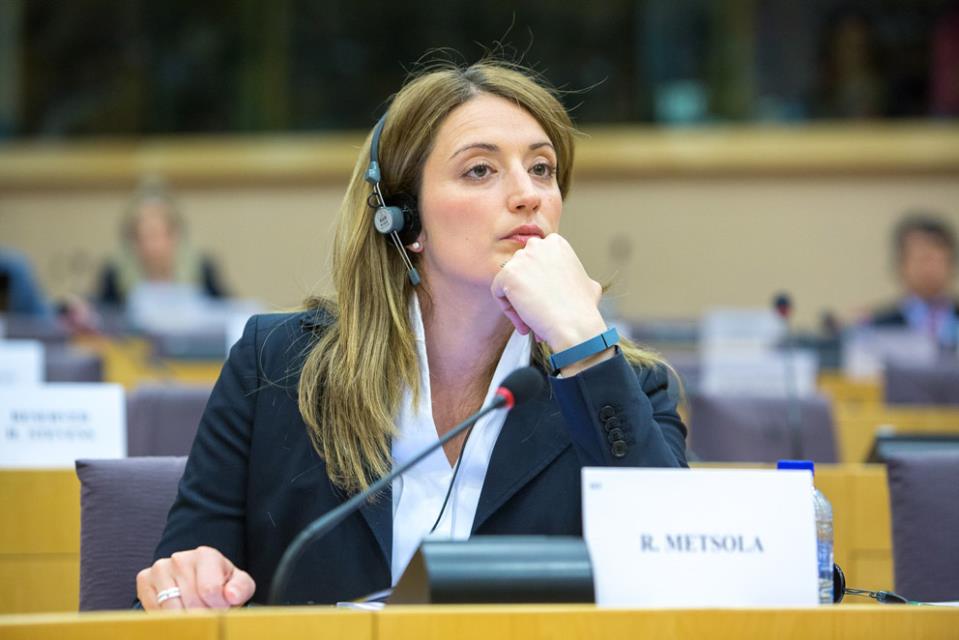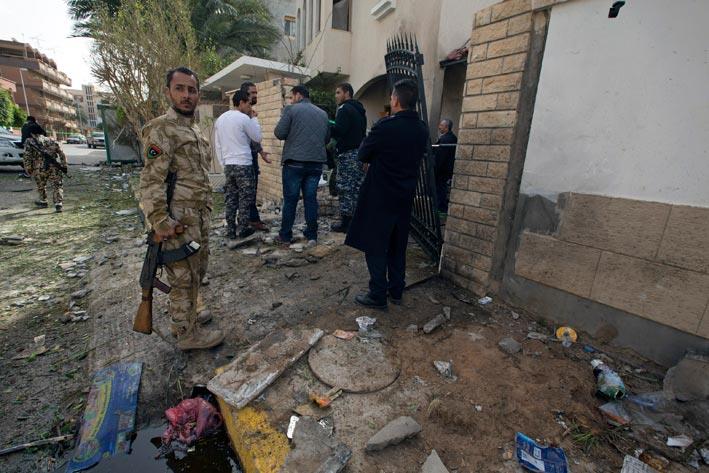The EU seems to have declared all-out war against human smugglers. The Council, in its declaration following an meeting on 23 April, declared the need to “disrupt trafficking networks, bring the perpetrators to justice and seize their assets, through swift action by member state authorities in cooperation with EUROPOL, FRONTEX, the European Asylum Support Office (EASO) and EUROJUST, as well as through increased intelligence and police cooperation with third countries”. It also plans to “undertake systematic efforts to identify, capture and destroy vessels before they are used by traffickers”.
MEPs Marlene Mizzi and Therese Comodini Cacchia highlighted that the point relating to the destruction of vessels really captured peoples’ attention.
The Atalanta operation saw a joint EU naval force tackling the Somali piracy situation. Dr Comodini Cachia points out that the description of that operation mentions nothing about the destruction of vessels, but rather focuses on protecting vessels and deterring piracy at sea. “In practice, the logistics and the operations needed for identification of vessels to be destroyed will be hefty. Libya has also reacted, stating that no country can shoot at vessels in its waters.

“This can, however, be turned into a good idea. Should we be able to establish an operation to detect vessels that can be used for human trafficking and deter this kind of organised crime, then this could be positive. However, we still need to see what the Council really meant.”
The EPP is supporting the idea of naval forces on the Libyan border and Dr Commodini Cachia believes that, in order to tackle the migration situation, some form of military power is needed. “When the Council mentions destroying ships used by smugglers what we are really referring to is organised crime. When dealing with organised crime, removing a single factor will not result in the destruction of the organisation”.
She stressed that it is not enough to have a military presence out at sea. “Let’s do it to save lives, to detect migrants before more tragedies in the Mediterranean occur”. As for organised crime, the MEP argues: “It’s not easy, as this is a complex, multi-faceted issue. We are dealing with organised crime and that in itself is difficult as this kind of crime has its own economy. Some people are making millions out of trafficking. We must first understand that we are dealing with a business without conscience”. The need to identify factors and elements of the crime ring must be the first priority, she said, and “then we can begin to remove those elements one by one.”

Dr Comodini Cachia believes that human traffickers exist everywhere, including on EU territory. She mentioned that there are a large number of Europeans who are also victims of trafficking. “We do not have evidence indicating the location of the ring leader, but we cannot exclude the fact that he or she could be on European soil”.
Migration is a symptom not a cause
MEP Marlene Mizzi tends to support diplomatic measures more than military measures. “However, if all else fails, then obviously more impressive means are needed. Planning to destroy the boats used by traffickers is acceptable in principle. However, we need to see how this would be done. We must see where such boats are and ensure that no innocent people are caught in the crossfire. It is easy to say ‘we will destroy their boats’, but I am sure they will be moored somewhere and not be somewhere in the middle of the sea.”
She has just been given an opinion on migration within the PETI committee and said she will insist on the need for real burden-sharing, a real way of bringing those who deserve asylum to Europe safely, establishing centres in countries of origin and tackling the situation in their home countries.
Dr Mizzi explains that the EU pumps billions of euros into African countries, and asks: “Where is this money going? Is it reaching the citizens? Is it being invested? We need to ensure that those funds are invested in education, healthcare, industry and structural funds to ensure that these people are given a future in their own country. If they are given a future in their own country they will not need to cross the Sahara and the Mediterranean in the hope of a better life.
“When we attend assemblies together with countries from the African, Caribbean and Pacific Group of States (ACP), African parliamentarians themselves do not know where these funds are heading. This is a major problem. A lot of the former masters of these countries are today a part of the EU and so should have a sense of responsibility towards these people to ensure that they have a future in their own country”.

A grand coalition
MEP Roberta Metsola explains that the shape of the current parliament is different to that of previous parliaments. “The S&D and the EPP are in a so-called grand coalition, where we lead on major issues. At the beginning of this legislature there was recognition that the European Parliament should lead on migration – that it could use its clout to pressure other institutions into arriving at concrete solutions. Therefore the EPP and the S&D groups began working together. I, along with an S&D member, am at the moment listing priorities that a report on the issue will contain”.
This report will go beyond immediate measures and tackle medium to long-term measures. “There are eight chapters, which vary from rescue to returns to granting protection to asylum seekers and also examining possibilities for legal migration”.
She clarified that it is still difficult to identify areas of disagreement as they are still electing the rest of the group representatives who will work with them. “We will delegate tasks on specific chapters within the report and then identify some form of common ground. I am under no illusion that this will be easy and I know it will be a very difficult task as this house is a conglomeration of members ranging from the extreme left – which would argue that every migrant wanting to come to the EU should come – to the middle ground, where the EPP lies, saying that everyone who is eligible for protection should be granted protection, to those not wanting any migrants.”

The Libyan question
Europe has argued that Libya is crucial in resolving the immigration situation, but recent reports highlight the fact that detention centres in the African nation are in a distressing state, and the lack of international human rights legislation is reason for concern over the treatment of migrants.
“Stability in Libya is crucial for a number of reasons – and not just migration” says Roberta Metsola. “We are on the verge of a failed Libyan state, with the Islamic State flourishing and taking advantage of that failing state. One major concern is security. We are concerned about security in the Mediterranean and we are legitimately pushing for a quick resolution of the differences between the warring factions in order to regain some form of stability in the country. Returning migrants to Libya would not necessarily be in line with the principle of non-refoulement (a principle of international law that forbids the rendering of a true victim of persecution to his or her persecutor).
“A united Libya, however, will provide us with better options to combat smuggling. It does not mean people will stop arriving in Libya, but it could mean that people will stop fleeing to Tunisia, that people currently working in Libya will not need to flee as they will be happy there. We must also keep in mind Malta’s the fact that business interests in Libya are losing revenue as time goes by.”
Dr Comodini Cachia doubts that there is a single country in the world that doesn’t deal with migration. “Non-EU countries such as Turkey house a large number of migrants and Libya is one of those countries normally considered to be a country of passage. What happens in Libya is documented by some journalists, but I believe we still don’t have a clear picture of the tragedies that occur within that country. We have seen a number of investigative journalists document the catastrophic conditions of migrants in Libya, not only in detention centres but also en route to the Mediterranean. Everyone seems to have jumped on the bandwagon – asking the EU to send money to Libya to deal with migrants. However, we must remember that, prior to the crisis in Libya, the EU used to train Libyans on how to detect migrants. How can we resume this now with such an unstable situation? A stable Libya will help. The EU deals with migration from different areas. Southern EU countries deal with North African migration, yet other countries like Germany deal with migrants from the East. There was an incident a few weeks ago where a group of migrants was run over by a train as they were crossing the border between one EU country and another.”